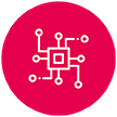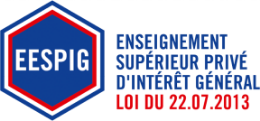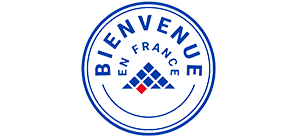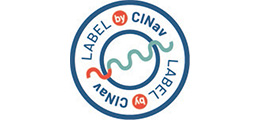Systems division
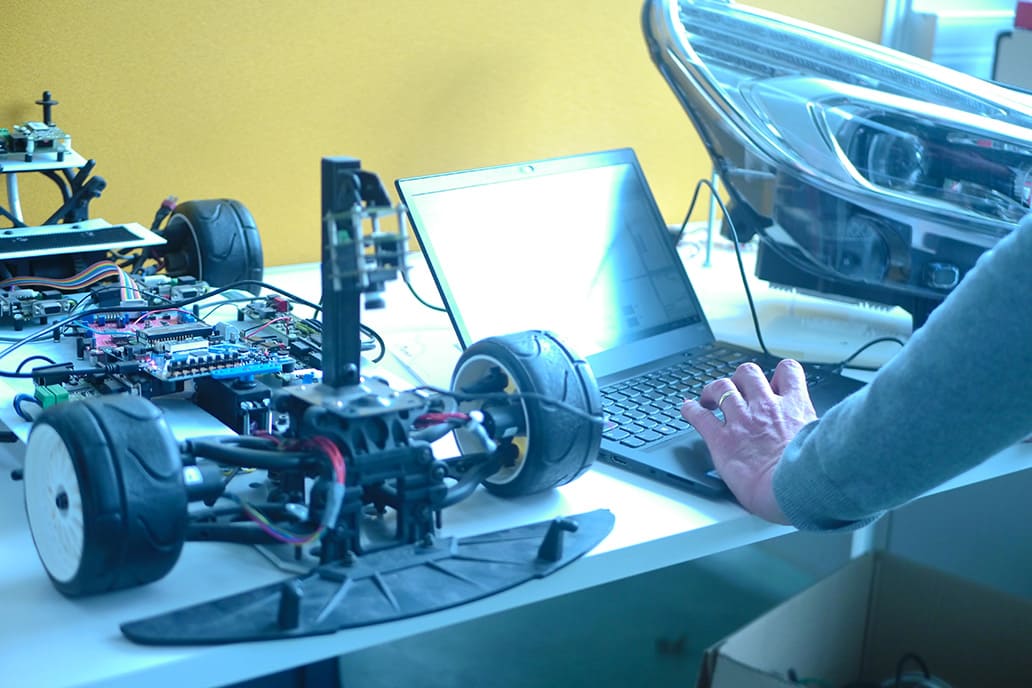
The Energy and Embedded Systems for Transport (S2ET) department carries out research into electric vehicles, the hybridization of energy sources and autonomous vehicles
The mission of the Energy and Embedded Systems for Transport (S2ET) department is to develop innovative solutions for electrified transport systems, that are cleaner, environment-friendly, smarter, safer and better suited to the needs of new mobilities.
With its special position linked to the complementarity and strong ties between the themes of energy, control and embedded systems, the department’s mission is to “make transport systems reliable through design and control”.
In particular, research focuses on:
- Design and optimization of embedded energy storage systems and development of energy management strategies for new mobilities
- Development of diagnosis technics and synthesis of fault-tolerant control strategies for reliable and intelligent transport
- Optimization of embedded systems for autonomous and connected transport
The research conducted by the Energy and Embedded Systems for Transport department has applications in electric vehicles, autonomous vehicles, electric aircraft, more-electric aircraft, autonomous drones, soft mobility systems and autonomous trains/trams.
The expertise of the Energy and Embedded Systems for Transport department covers:
- Electric, thermal and aging design and characterization of embedded storage systems.
- Energy source hybridization (battery, supercapacitors, fuel cells, photovoltaic, etc.).
- Multi-physical modeling, design and optimization of embedded mechatronic systems.
- Advanced and fault-tolerant control.
- Artificial intelligence and learning methods applied to autonomous vehicles.
- Design and optimization of software architectures and real-time embedded systems.
Two research axes in the Energy and Embedded Systems for Transport department: “energy and control” & “embedded systems and connected mobilities”
Position and Scientific Issue of Energy and Embedded Systems for Transport department
Positionnement
The scientific position of S2ET department is quite specific. The team’s main added value lies in the complementarity and the combination of the topics of energy, control and embedded systems for transport applications such as electric vehicles, autonomous vehicles, electric aircraft and more-electric aircraft, autonomous drones, soft mobility systems and driverless train/trams. More specifically, it deals with the combined issues of “optimization and reliability of on-board energy storage and management systems”, “fault-tolerant control” and “optimization and reliability of real-time, critical embedded systems”.
The common thread is “optimizing and ensuring reliability through design and control of transport systems”.
Ainsi le positionnement est guidé par la « fiabilisation par la conception et par la commande des systèmes de transport ».
Scientific and technological issues
The main scientific issues the team is working on are:
- Design by optimization of energy conversion chains under multi-physical constraints.
- Integration of energy management strategies in the optimization and design of hybrid storage systems.
- Prediction and diagnosis of multiple faults in transport systems and development of related fault-tolerant control architectures.
- Integration of operational safety in the design and optimization of real-time, critical embedded system efficiency, and traceability across the whole design process.
The main technological issues are:
- Optimization of the total cost of ownership of electric vehicles.
- Ensuring reliability and optimization of cooperation between autonomous vehicles and their environment.
- Development and optimization of autonomous cooperation between aerial drones and land vehicles (automatic adaptation of energy management according to missions, combination design/ control/embedded architecture).
Energy and Embedded Systems for Transport department Reach
The reach of the S2ET department extends into a wide variety of actions and complementary achievements, including:
- Involvement in the steering committees of competition clusters (Mov’eo, Astech and ID4Car); the ITS (Intelligent Transport Systems) scientific group, the SEEDS (Societal Dimensions of Electrical Energy Systems) and MACS (modeling, analysis and control of dynamic systems) research groups.
- Participation in peer review committees and editor membership of reviews and journals (International Journal of Nonlinear Dynamics and Control, International Journal of Digital Signals and Smart Systems, Mechatronics and Applications, etc.).
- Membership of the scientific committees of several national and international conferences (CIEL, AICCSA, IEEE SSD, IEEE ICIP, IEEE CoDit, etc.).
- Organization of special sessions at international conferences (IEEE SSD and IEEE CoDiT, etc.).
- Chairing of several sessions at IEEE conferences (SSD, CIFA, CCA, etc.).
- Participation in the organization of scientific events (ESTACA International Week, research days, competition cluster days, SIA days, etc.).




